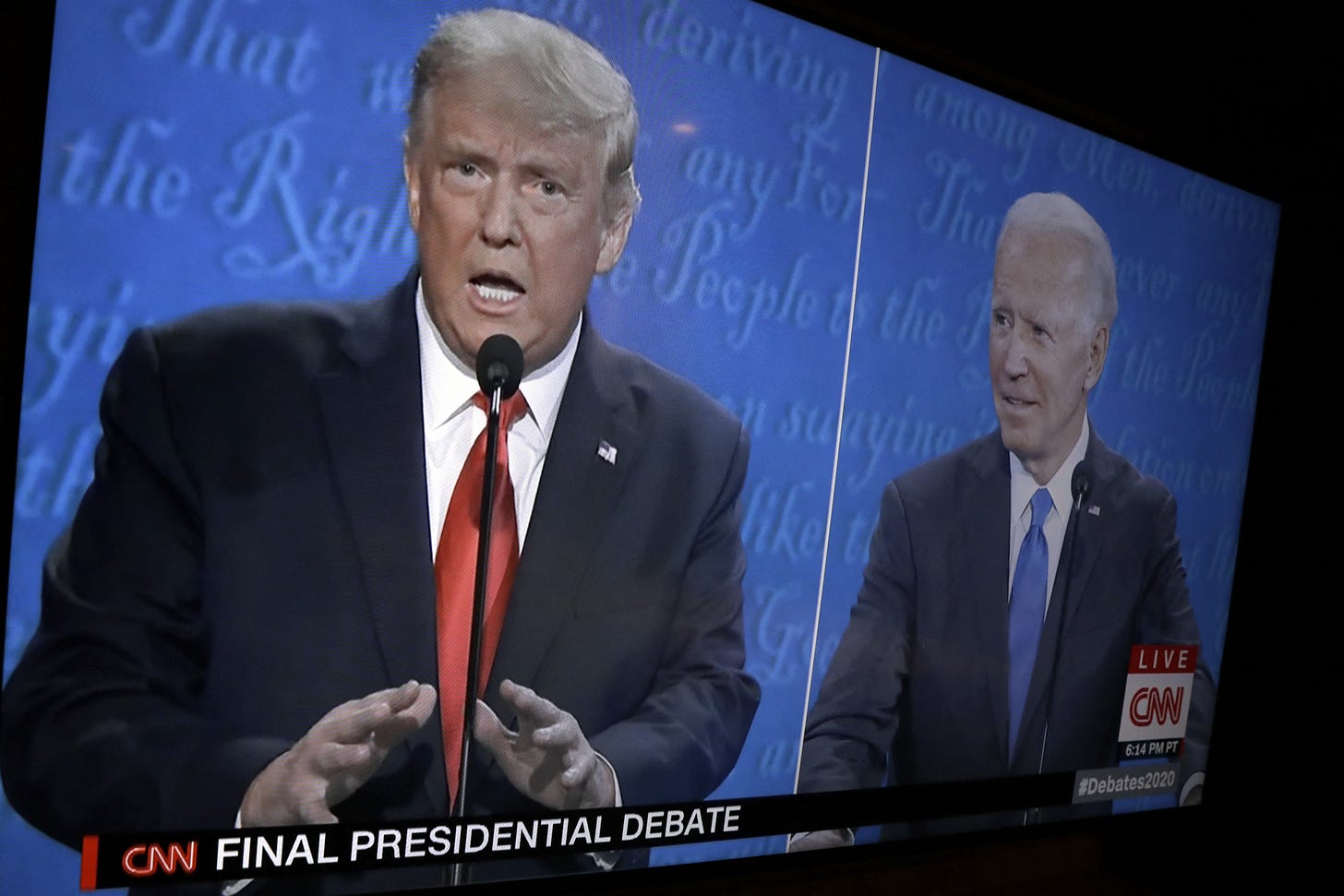Presidential Debates Change Perceptions Not Elections
No one should expect the presidential election to dramatically change based on the first debate, but debates can change perceptions of the candidates.
Join us tonight at 8:00 PM ET for a presidential debate chat. This chat is only available to paid subscribers. If you aren’t a paid subscriber, there has never been a better time to become one. For today only, get 20% off a one-year subscription to The Daily. Come and spend debate night with us, and save money by clicking the button below.
What Should You Really Expect Out Of The Biden-Trump Debate?
The media has gone into overdrive hyping the significance of the Biden-Trump debate, but will it matter that much to an election that doesn’t take place until November, or does it have as much bearing on the general election outcome as a primary debate in January?
The honest answer is that we don’t know because there has never been a presidential election debate held in the middle of summer. For the record, I am not a fan. I think this is a dumb idea that was agreed to by two campaigns that are more interested in getting debates out of the way and avoiding mistakes than informing the voters.
Speaking of informing the voters, this is a good time to remind viewers that as debates have devolved, they have become poor sources for informing viewers.
The rules for the CNN debate are an attempt to take steps to address this issue:
No opening statements.
Candidates’ microphones are muted until it is their turn to speak, and each has two minutes to respond to a question.
There is no studio audience, and the respective campaign staffs cannot speak or interact with their candidate until the end of the debate, including during two commercial breaks.
No pre-written notes are allowed, although candidates will be given a pen, paper and water.
These new rules should help to a degree. For example, interruptions plunged when the second Biden-Trump debate in 2020 adopted the microphone-cut rule. Fewer interruptions should mean more focus on candidate answers.
No studio audience is a reform debate experts have urged for decades. Candidates tended to play to the audience instead of answering questions, so no audience to play to should mean less theatrics.
Will this all lead to a more informative debate?
It is doubtful because it is still up to the candidate to decide whether or not to answer the questions. If a candidate wants to ignore a question and babble for two minutes, there is no rule against it.
You should expect a calmer scene at the debate, but probably not one that will be more substantive.
The big question is, who will be watching?




